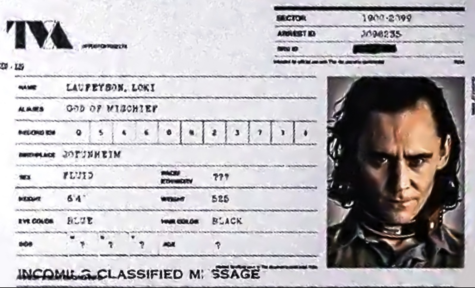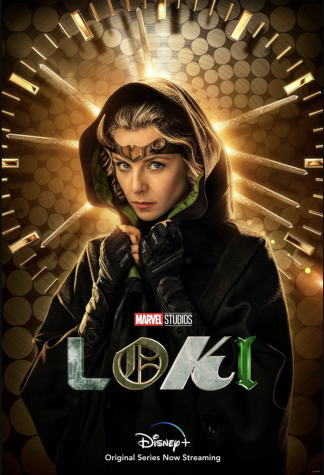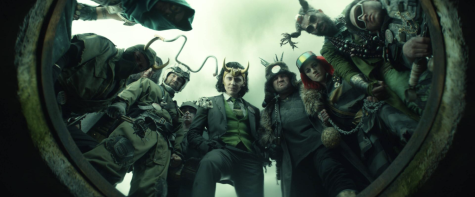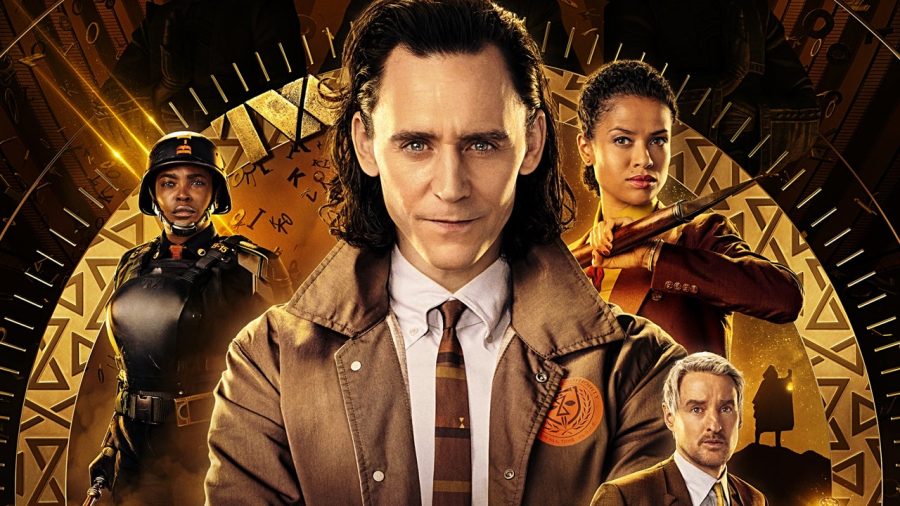Loki and How Marvel Studios Continues to Botch Queer Representation
If you’ve been keeping up with Marvel over the summer, you probably saw Loki, the third show of Phase 4 on Disney+, following everyone’s favorite god of mischief. Exploring themes of morality and setting up the next round of major conflicts for our heroes in the next few films, the show was popular among critics and many fans. Despite its widespread popularity, however, it was not without its controversies.
Marvel fans have been clamoring for LGBTQ+ representation for years on end, though the studio has come off severely lacking. It’s one thing to have no representation, but it’s another to openly queerbait an audience while not delivering on the hints given (see: Bucky Barnes). More recently, the creators of Loki announced that they would be depicting the titular character, Loki, as gender fluid in the show. However, that’s not exactly what happened.
Fans have been speculating for years of Loki’s potential bisexuality and gender fluidity, fueled by lore from both classic Norse mythology and the Marvel comics. Though his sexuality was confirmed in episode three, the story of his gender fluidity has been more uncertain.

In a short promotional video released before the show debuted, if you pause at the very beginning and zoom in carefully to the information document (which included details such as height, weight, hair color, and more physical characteristics), you can see the text “SEX: FLUID.” As soon as the fans noticed this, they took it as confirmation that he was gender fluid. Kate Herron, the director, detailed how important it was for her to include this in the show while Michael Waldron, the head writer, said that it “was never up for debate.” It was shocking: a canonically queer character headlining their own project? Unheard of for Marvel.
And yet, perhaps it was too good to be true. Though similar slips of paper are also briefly shown in the stylized credits of the show, Loki’s pronouns nor gender are ever mentioned or discussed—our protagonist only ever goes by he/him pronouns. There’s no talk about gender—that is until there’s a female-presenting Loki variant, the show’s term for an alternate version of Loki.

Played by another actor (Sophia Di Martino), this variant instead goes by the name of Sylvie. She only ever goes by she/her pronouns and is treated as a rarity among Loki variants: when asked if the other male-presenting Loki variants if they’ve “ever met a woman Variant of [them],” (“Journey Into Mystery” 16:08) the most mature of them, the elderly Classic Loki, responds with “[s]ounds terrifying” and a look that could either be skepticism or disgust. Sylvie is labeled as different from all the other variants, including the protagonist. This scene clearly indicates that both the protagonist Loki and all other incarnations of Loki are not gender fluid but cisgender.
When Herron was asked about this scene, she had no concrete answer. “I would say the logical answer for me would be maybe Classic, Boastful, and Kid [Loki] haven’t quite got there yet in their timelines. Or maybe they’re not gender fluid, those particular Lokis. I would say it’s open to interpretation, that would be my thinking. It’s one of those things I guess where things can contradict slightly, but that would be my logic.” This leaves three possibilities.
Firstly, these variants of Loki are not at the point in their lives in which they have realized their gender fluidity. I find this hard to believe, considering Classic Loki is presented as the most introspective and mature of the bunch: if any variant would have realized such a thing, he likely would have. Despite this, he still reacts with skepticism. If this were true, then there’s still no apparent representation: there may be implications, but if it isn’t outright stated, then it can’t be considered true representation.
Second, these variants are not genderfluid. The scene implies that Sylvie is unique from all other Loki variants, including our primary protagonist, because she is a woman. If this is the case, then this isn’t gender fluid representation, it’s multiple cisgender variants.

Third, and most likely, the production of Loki didn’t know what “gender fluid” meant and shoved in a piece of paper and two cisgender Loki variants just so they could claim “representation.” It is abundantly clear from Herron’s interview that there was no rhyme or reason to the show’s portrayal of gender fluidity: she and the rest of the production simply didn’t understand how to represent it. When questioned about the contradictions, Herron leaves it up for interpretation rather than giving a clear answer as the director, even calling it a “contradiction” herself. So it appears the only evidence within the show confirming Loki’s gender fluidity is that slip of paper saying “sex: fluid,” right? Even that doesn’t hold up. Sex is not the same gender, so this label isn’t necessarily indicative of gender fluidity. If anything, it’s a reference to his shapeshifting powers instead of labeling a part of his gender identity.
So what does the series have to show for its claimed gender fluid representation? Absolutely nothing. Lacking any substantial conversations about pronouns or gender, Loki did not deliver in any way, shape, or form on the representation it vowed to have. Marvel can’t have their cake and eat it too; if they want to reap the brownie points for representation, they should take a definitive stance rather than merely throwing in small clues that ultimately lead to nothing.
Though the show may have confirmed Loki’s bisexuality in a throwaway line, it did a major disservice in regards to his gender fluidity. Despite cast and crew members coming forward about how happy they were about the confirmation was finally acknowledged, the big step forward for representation that fans were sorely hoping for never came. Loki has been renewed for a second season, where Marvel could learn from their mistakes and rectify the situation. In the meantime, fans can look forward to other forms of queer representation, such as Phastos in the upcoming film Eternals and rumors of Valkyrie in Thor: Love and Thunder. However, this latest queerbait can be added to Marvel’s running list.

Aleena is the Editor-in-Chief of the Keynote and a senior at Keystone. She enjoys reading, writing, and baking in her spare time and looks forward to discussing...

